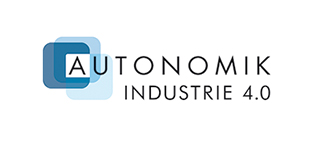Cross-cutting topics
Legal challenges
The AUTONOMICS for Industry 4.0 concept includes a host of technical, organisational and economic innovations which have been almost impossible to assess up to now in terms to their reach and impact. Although revolutions like these affect legislation, resulting in more or less quick change, the legal framework is extremely important for the development and implementation of innovations. This is particularly true in a country like Germany with its highly developed legal system based on the rule of law and a very active legal policy. Laws can hinder innovation, but they can also promote it.
The legal challenges facing Industry 4.0 are closely linked to legal issues regarding autonomous systems and, in some cases, go far beyond this. The most important difference, from a legal perspective, between the predecessor project "Autonomics - autonomous and simulation-based systems for medium-sized businesses" and "AUTONOMICS for Industry 4.0" is the comprehensive networking that is part of the design for Industry 4.0. The resultant legal questions have been mostly discussed up to in the field of Internet law which has attained new and in some areas crucial importance.
Many of the legal issues brought up are closely linked to the new quality of machine networking. That's why the first step in examining the relevant legal issues understandably begins with Internet law (including provider liability law and complex cross-cutting issues involving elements of civil, criminal and public law). As in the predecessor programme, the AUTONOMICS topic throws up significant questions regarding liability for damage to machines, products, other assets and injury. From a civil law perspective, tort law and product liability law are important, however, criminal law is also relevant. It should be remembered that injured parties will often recourse to criminal law simply for reasons of securing evidence. In order to avoid liability (also in growing M2M communications), it is imperative that the machines and devices used within the scope of Industry 4.0 be equipped with a host of sensors that can capture and process large quantities of ambient data and trigger suitable safety responses. The vastness of the data captured, however, leads to considerable problems with data protection law.
With a view to liability (under civil and criminal law), the right balance between technical rules and the legal criterion for negligence must be found. Considering the high level of many technical rules, it is regrettable that up to now both worlds, i.e. technical regulation and legal regulation, have existed largely independent of each other. It is now time to transform competition into synergy. Certain sensitive data is also protected by copyright and this must also be examined. In the event of injury, applicable supplementary penal provisions will also become relevant.
Man-machine co-operation is extremely important within the context of Industry 4.0. This poses a huge challenge for labour law and especially for occupational health and safety law. All employees working within the scope of Industry 4.0 can come into contact with smart machines. Special attention should be paid here to the considerable public relevance of the issues mentioned which can determine whether or not innovative, technically organised concepts are accepted by society. This is the reason why the relevant issues must be identified as early as possible and proposals for solutions developed. Following the first phase of analysis, these proposals can then be introduced into the social and political debate.
- Recommend this page:
- Print view
